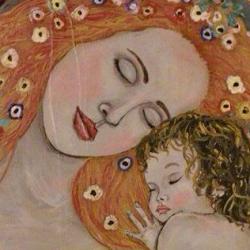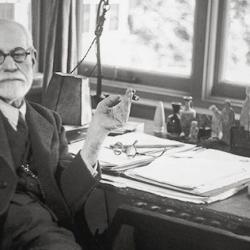Adam Gopnik reviews Frederick Crews’s Freud in The New Yorker, and along the way to the review gives a brisk overview of the spread of Freudianism from Vienna to Hampstead to Berkeley, where Crews spent his career teaching. Crews was among the earliest Freudian literary scholars, but has devoted his later years to doing penance with a spate of critiques and take-downs, including his recent book.
At the end of the review, Gopnik claims that Crews presents the “novel charge” that psychoanalysis is “anti-Christian”: “By promulgating a doctrine that makes ‘sexual gratification triumphant over virtuous sacrifice for heaven,’ he says, Freud ‘meant to overthrow the whole Christian order, earning payback for all of the bigoted popes, the sadists of the Inquisition, the modern promulgators of ‘blood libel’ slander, and the Catholic bureaucrats who had held his professorship hostage.'”
Some years ago, a maverick Freud scholar named Peter Swales claimed that Freud got his sister-in-law Minna pregnant, and Crews repeats the accusation, with a theological gloss. In Gopnik’s summary, “Forbidden sex could have given him the confidence he needed to take the extreme step into mind reading. ‘To possess Minna,’ Crews says, ‘could have meant, first, to commit symbolic incest with the mother of God; second, to ‘kill’ the father God by means of this ultimate sacrilege; and third, to nullify the authority both of Austria’s established church and of its Vatican parent—thereby, in Freud’s internal drama, freeing his people from two millennia of religious persecution.’”
No doubt, one rarely hears the theory that Freud developed a deliberately anti-Christian psychology from emeritus literature professors form Berkeley, but it’s hardly a new theory. Not that I think it’s exactly right: Freud’s relation to Christianity is more ambivalent and interesting, as RJ Rushdoony argued in his Freud many years ago.












